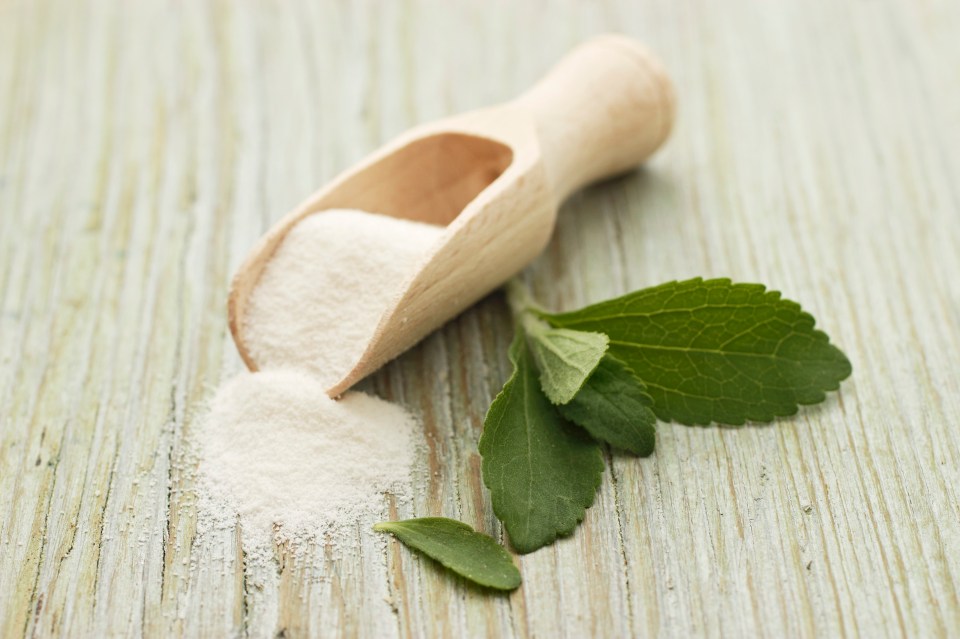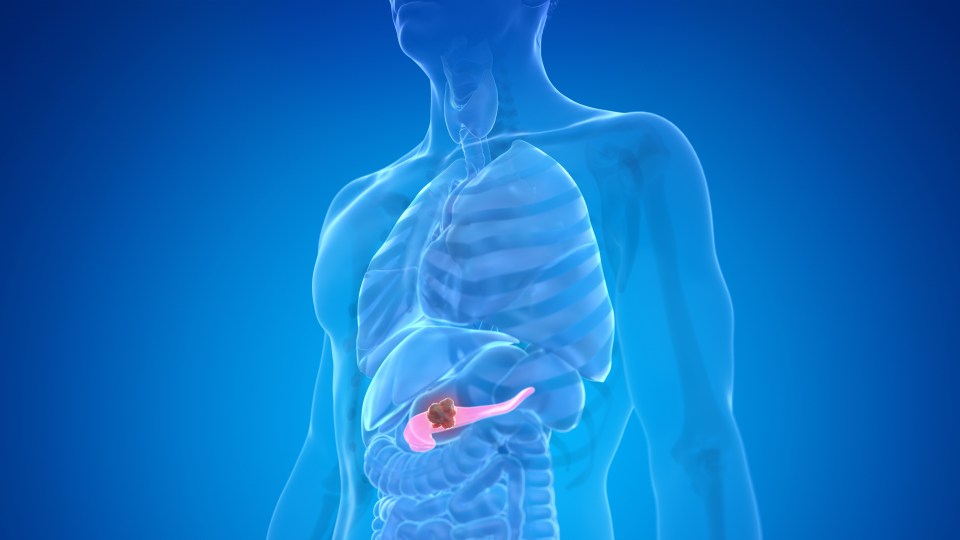A COMMON sugar substitute used in fizzy drinks, yoghurts and gum could be used to combat one of the deadliest kinds of cancer.
Researchers fermented the zero calorie sweetener and tested it against pancreatic cancer – finding that it killed off malignant cells but didn’t harm healthy ones.
Stevia is a shrub-like herb used to sweeten drinks and desserts instead of sugar, which can also be bought as powder or tablets.
Previous research has suggested that stevia leaf extracts could have potential “anticancer effects”.
But isolating specific substances within the herb that could help protect against cancer and using them has remained challenging.
Researchers from Hiroshima University suggested fermenting stevia with bacteria can structurally change the extract and produce bioactive metabolites – compounds that can impact living organisms.
Read more on pancreatic cancer
Study author Masanori Sugiyama, a professor in the Department of Probiotic Science for Preventive Medicine, said fermentation – or “microbial bio-transformation” – could “enhance the pharmacological efficacy of natural plant extracts” like stevia.
The team tested their theory out against pancreatic cancer cells.
“Pancreatic cancer is a highly malignant tumour of the digestive system with a poor prognosis,” co-author Prof Narandalai Danshiitsoodol said.
“Globally, the incidence and mortality rates of pancreatic cancer continue to rise, with a five-year survival rate of less than 10 per cent.
“The primary reason pancreatic cancer is considered one of the deadliest cancers is its subtle, insidious onset, with most patients being diagnosed at an advanced stage and missing the optimal treatment window.
“Furthermore, pancreatic cancer is highly invasive and prone to metastasis, showing significant resistance to existing treatments such as surgery, radiotherapy, and chemotherapy, resulting in very limited therapeutic efficacy.
“Therefore, there is an urgent need to identify new and effective anticancer compounds, particularly those derived from medicinal plants.”
Researchers used lactic acid bacteria to ferment stevia extracts.
They isolated over 1200 strains from fruits, vegetables, flowers, and medicinal plants and evaluated their health benefits.
They finally landed on Lactobacillus plantarum SN13T strain (FSLE) derived from banana leaves “to enhance the antioxidant and anticancer activities of stevia leaf extract through fermentation”.
They tested fermented and non-fermented stevia extracts against pancreatic cancer cells in lab dishes.
Fermented stevia killed pancreatic cancer cells more efficiently than the non-fermented extract, the study published in the International Journal of Molecular Sciences found.
This suggested that “the fermentation process enhances the bioactivity of the [stevia] extract”, Prof Sugiyama said.
Researchers tested out different fermentation levels to see which was most effective against cancer cells.
Symptoms of pancreatic cancer
PANCREATIC cancer doesn’t always cause symptoms in its early stages.
As the cancer grows and you do begin to show signs, these may come and go and be unspecific, making it hard to diagnose, according to Pancreatic Cancer UK.
Common symptoms include:
- Indigestion – a painful, burning feeling in your chest with an unpleasant taste in your mouth
- Tummy or back pain – it may start as general discomfort or tenderness in the tummy area and spread to the back, which get worse lying down and feel better is you sit forward
- Diarrhoea and constipation – see a GP if you have runny poos for more than seven days, especially if you’ve lost weight as well
- Steatorrhoea – pale, oily poo that’s bulky, smells horrible and floats, making it hard to flush
- Losing a lot of weight without meaning to
- Jaundice – yellow skin and eyes, as well as dark pee, pale poo and itchy skin
Lower concentrations didn’t kill cancer cells immediately, but they slowed their growth.
Healthy kidney cells were mostly unaffected by the stevia extracts.
Researchers plan to study how fermented stevia affects cancer in mice next, to see how various dosages will work in living organisms.
“The present study has substantially enhanced our understanding of the mechanism of action of the Lactobacillus plantarum SN13T strain in the fermentation of herbal extracts, while also offering a valuable research perspective on the potential application of probiotics as natural anti-tumour agents,” Prof Danshiitsoodol said.
In the UK, about 10,800 people are diagnosed with pancreatic cancer each year and 9,600 pass away from it, according to Cancer Research UK.
It’s the fifth most common cause of cancer death.
Since the early 1990s, pancreatic cancer incidence rates have increased by 18 per cent in the UK.
The disease is often diagnosed at a late stage because it frequently lacks noticeable symptoms in the early stages.
Surgery, chemotherapy and radiation can help extend patients’ lives.
A blood test to pick up early signs of pancreatic cancer is being trialled in patients with a recent diagnosis of type 2 diabetes – a known risk factor for the disease.
Meanwhile, researchers at Case Western Reserve University and Cleveland Clinic have developed a new type of jab to fight pancreatic cancer.

